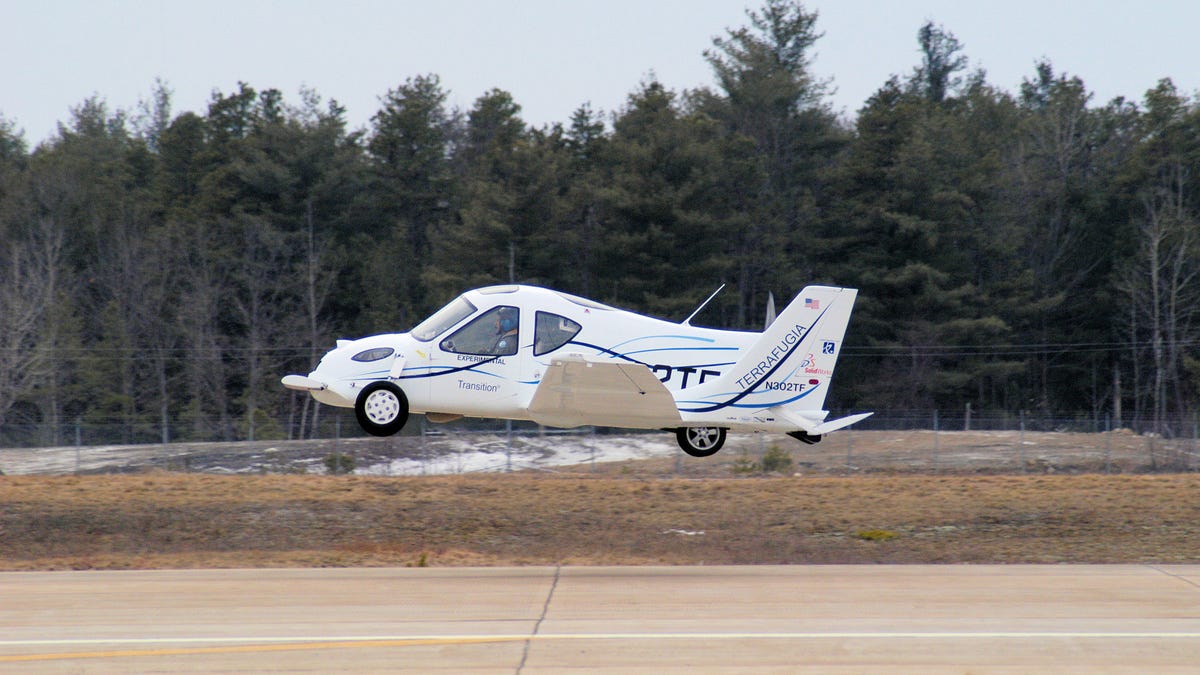Volvo parent Geely to buy flying-car startup Terrafugia, report says
It looks like at least one automaker has found a new way to burn through cash.

Your next Volvo probably won't come with wings, which makes its parent company's latest purchase all the more confounding.
Geely, parent company of Volvo Cars, has agreed to purchase the flying-car startup Terrafugia, the South China Morning Post reports. While the purchase amount was not disclosed, SCMP reports that this deal has been in the works since last year.
Neither Geely nor Terrafugia immediately returned a request for comment.
So what does this mean? It's anybody's guess, but Geely might see a profitable future in the flying-car business, despite it not really existing yet. Considering China regularly deals with lots of traffic, it could be seen as a smart way to get around that issue. In the event this idea takes off (groan), Geely would be one of the first with its foot in the door, which could be a big advantage.
Terrafugia started all the way back in 2006, with its MIT-graduate founders hoping to get a flying car to the delivery stage by 2015 or 2016. That has since been pushed back. Its first six-figure creation, the Transition, promises a cruise range of 400 miles at speeds up to 100 mph. Its far sleeker sister, the TF-X, promises to be capable of vertical takeoffs and landings.
At this point, flying cars are still very much in the realm of science fiction. Companies like Terrafugia have expressed interest in this new method of consumer transportation, and while Terrafugia is probably closer than anyone else, a massive wall of regulatory red tape stands in the way of turning drivers into pilots. I'm a pretty experienced driver, but if someone told me to "squawk 1200," I wouldn't know what the heck to do.
Even Uber has looked into flying commuter vehicles, producing a 99-page white paper on the idea of using small, electric VTOL (vertical takeoff and landing) aircraft to shuttle commuters into and around urban areas. This method of transportation is much more likely to come to fruition than handing Camry drivers the keys to an airplane -- Uber sees initial testing taking place around 2025, provided governments decide to play ball.

